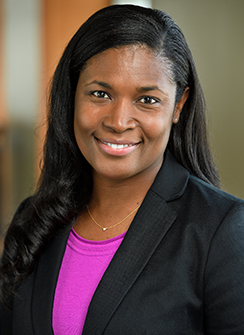Deep into unprecedented times, we need some idea of what’s to come next. Faculty experts at the Johns Hopkins School of Nursing weigh in on trends shaping health in 2022 and beyond.
COVID-19
“We are now entering our third year of COVID-19,” says Dr. Jason Farley. “Clearly we are in this for the long haul.”
Following the patterns around the world, cases from the Omicron variant will begin to dissipate by late-January. As case counts fall, any temporary measures for added public health protections will again be lifted and the public will return to a hopeful optimism that things are improving. We will continue to see a variety of new variants emerge. New evidence of a new, likely significant variant, was reported in France in early January. We are likely to continue to see new variants of concern and must follow them closely to determine how they will change vaccine effectiveness and therapeutic options.
Future COVID vaccinations, whether in the form of a booster or additional dose, are likely to be required. Data are emerging on the ‘protective timeline’ post booster dosing. It may be that protection against Omicron (and perhaps future variants) only lasts about 10 weeks. Time (and more data) will tell.
“What is clear is that our public health agencies must follow the science and communicate principles and recommendations in a much clearer manner.”
Dr. Jason Farley
Balance is essential. In our third year, the push-pull between public health measure and individual liberty has resulted in poor decision-making capacity at many levels. Most recently, the CDC made the determination that an asymptomatic person or a person with resolving symptoms, need only quarantine for five days with an additional five days of mask wearing. I have already spoken with three families impacted by Omicron who had no idea how to interpret symptom resolution. What is clear is that our public health agencies must follow the science and communicate those principles and their recommendations in a much clearer manner.
Mental health
We will see a greater demand for mental health services delivered virtually. We will see more opportunities for individuals to integrate their mental health care during routine health visits, as having separate arms of health care doesn’t allow for good health.
Tamar Rodney, PhD, MSN, RN, PMHNP-BC, CNE
Mental health among nurses
We exist at an inflection point for nurses, where there is great meaning in the work, but much is asked of nurses.
We must see investing in our health and wellbeing as an act of integrity rather than failure.
We must take multi-pronged approaches to meet the diverse and complex needs of nurses in all roles and specialties.
We must ensure the mental health and support programs offered by health care organizations are timely, confidential, trustworthy, and easily accessible.
Social determinants of health
Prior to the COVID-19 pandemic health care and health systems have been in midst of vast change:
From a sick focus to health focus,
From paying for visits and hospitalizations to paying for population health
From ignoring the conditions of people’s lives to focusing on where people live, work, play, pray, shop and age.
As this shift continues, nurses will be in the forefront of addressing what matters to people for their health, in the context of their daily lives.
dean Sarah Szanton, PhD, RN, FAAN
Climate equity
“Nursing will play a key leadership role in drawing attention to the disproportionate impacts of climate change on medically vulnerable and marginalized communities.”
In 2022 we will see growing awareness of the pervasive threats climate change poses to health – from wildfires to severe storms to emerging infectious disease – and the urgent need to respond to them.
We will expand local and global coalitions working together to address the impacts of climate change and advocate to enact policies that prevent further harm.
Nursing will play a key leadership role in drawing attention to the disproportionate impacts of climate change on medically vulnerable and marginalized communities and partnering with those most affected to drive equitable change.
Racism
We have spent the past two years getting (un)comfortable with identifying, defining and naming structural racism that has existed in our academic research and educational processes since the beginning of professional nursing. Now it is time to peel back the layers that maintain its invisibility.
We have spent the past two years getting (un)comfortable with identifying, defining, and naming structural racism.
Kamila Alexander, PhD, MSN/MPH, RN
We may see our academic training shift as bold transformations are implemented in our environments, curricula, and everyday interactions with each other.
We will lean into crucial conversations. We will operationalize equity to disrupt some of the core components of academic nursing that can cause pain to those marginalized within its boundaries.
The care nurses provide to enhance the human condition from the micro to macro levels of our society will be fortified by recognizing and addressing the inhumanity many have and continue to experience in our academic milieu.
Kamila Alexander, PhD, MSN/MPH, RN
Aging
We must continue to move forward in care, research, and policies by recognizing and working with our aging population to strive for independence, social participation, and the best quality of life possible.
The pandemic highlighted where many of the gaps and cracks are in our services for older adults. Now is the time to address these areas and work toward a more equitable system for our aging population.




